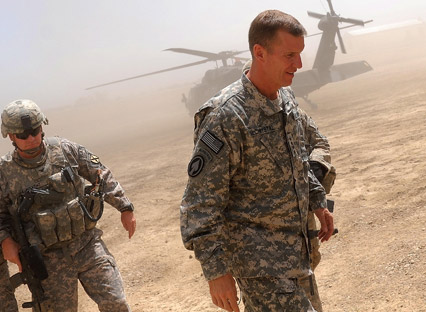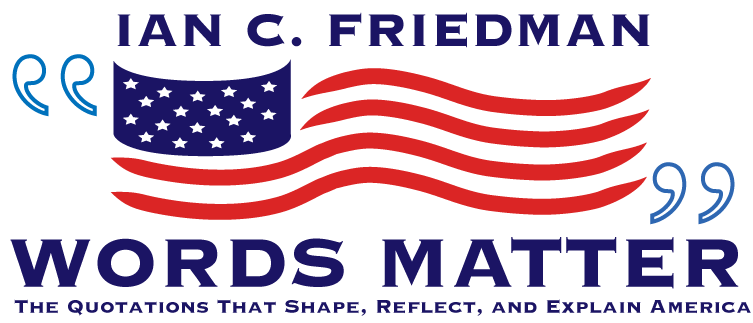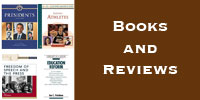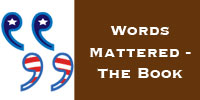“…a bleeding ulcer…” – Stanley McChrystal, May 24, 2010
 Though largely ignored by prominent news outlets (I learned about it from reading Andrew Sullivan’s blog), there has been a firestorm this week centered on comments made by General Stanley McChrystal, the top U.S. and NATO commander in Afghanistan.
Though largely ignored by prominent news outlets (I learned about it from reading Andrew Sullivan’s blog), there has been a firestorm this week centered on comments made by General Stanley McChrystal, the top U.S. and NATO commander in Afghanistan.
An article written by Dion Nissenbaum and published by McClatchy on Monday described the frustrating experience U.S. and allied forces are having in countering Taliban activity in southern Afghanistan. The article noted:
Instead, a tour last week of Marjah and the nearby Nad Ali district, during which McClatchy had rare access to meetings between McChrystal and top Western strategists, drove home the hard fact that President Barack Obama’s plan to begin pulling American troops out of Afghanistan in July 2011 is colliding with the realities of the war.
There aren’t enough U.S. and Afghan forces to provide the security that’s needed to win the loyalty of wary locals. The Taliban have beheaded Afghans who cooperate with foreigners in a creeping intimidation campaign. The Afghan government hasn’t dispatched enough local administrators or trained police to establish credible governance, and now the Taliban have begun their anticipated spring offensive.
“This is a bleeding ulcer right now,” McChrystal told a group of Afghan officials, international commanders in southern Afghanistan and civilian strategists who are leading the effort to oust the Taliban fighters from Helmand.
“You don’t feel it here,” he said during a 10-hour front-line strategy review, “but I’ll tell you, it’s a bleeding ulcer outside.”
A communications official from NATO responded with a letter to McClatchy criticizing the headline and the article’s overall balance. Of particular contention were the words “bleeding ulcer.” The letter and McClatchy’s response are definitely worth reading and they reflect an intellectually honest, vigorous, and civil exchange of valid points from both sides.
They also provide additional evidence of the importance of spoken words in critically important national affairs, such as the war in Afghanistan, which–for the first time since the U.S. invaded Iraq in 2003–now exceeds Iraq in the total deployment of American troops.




